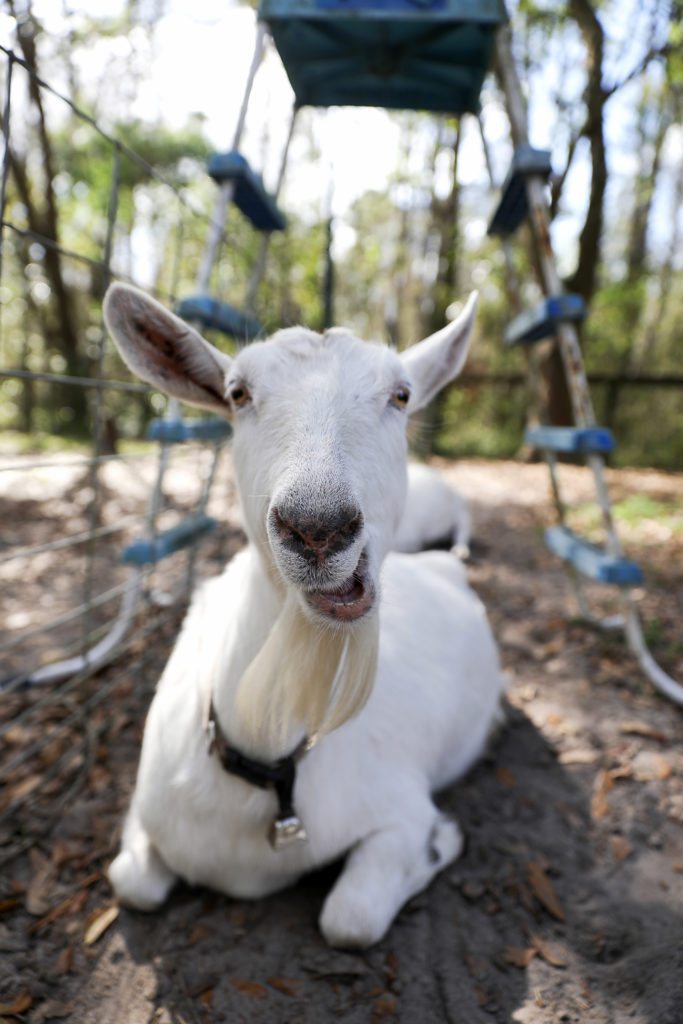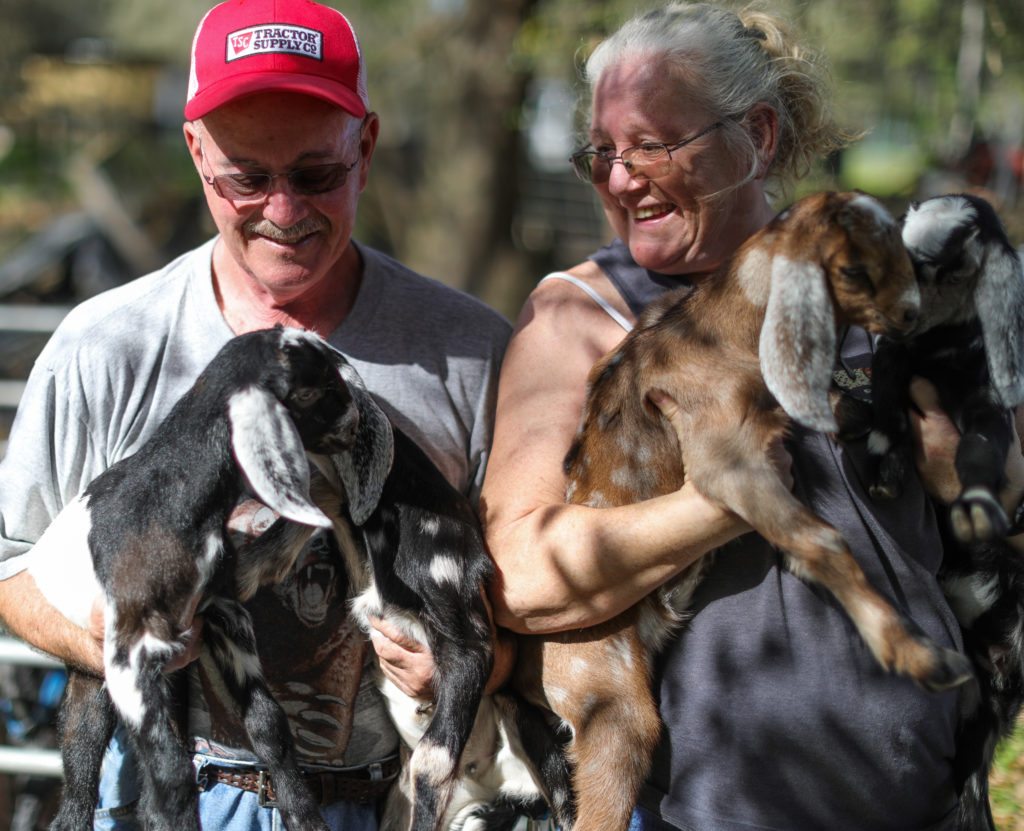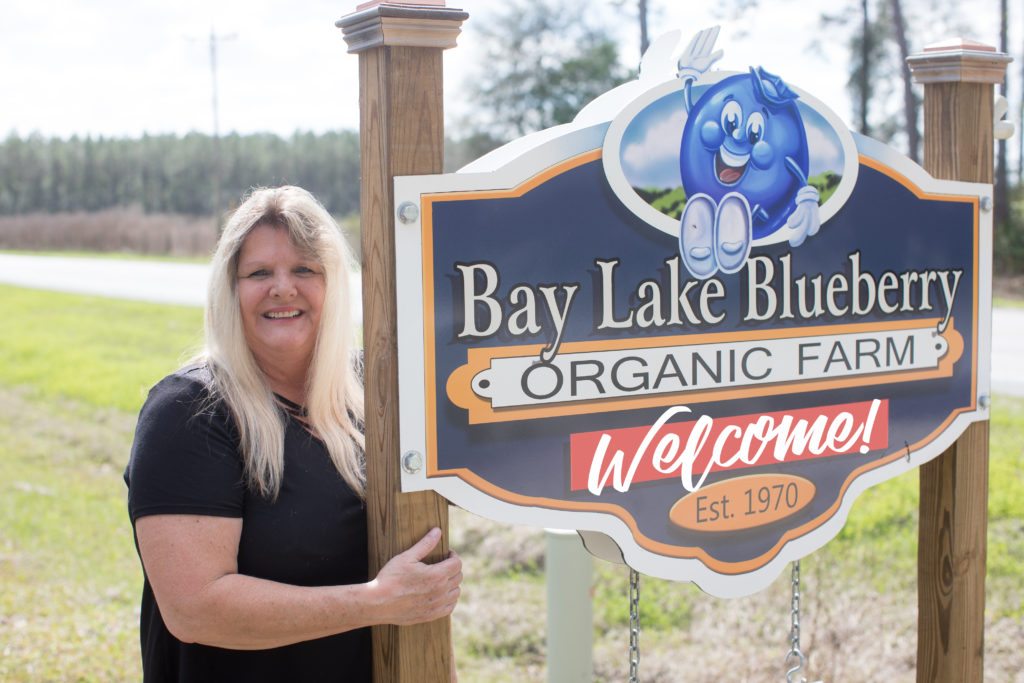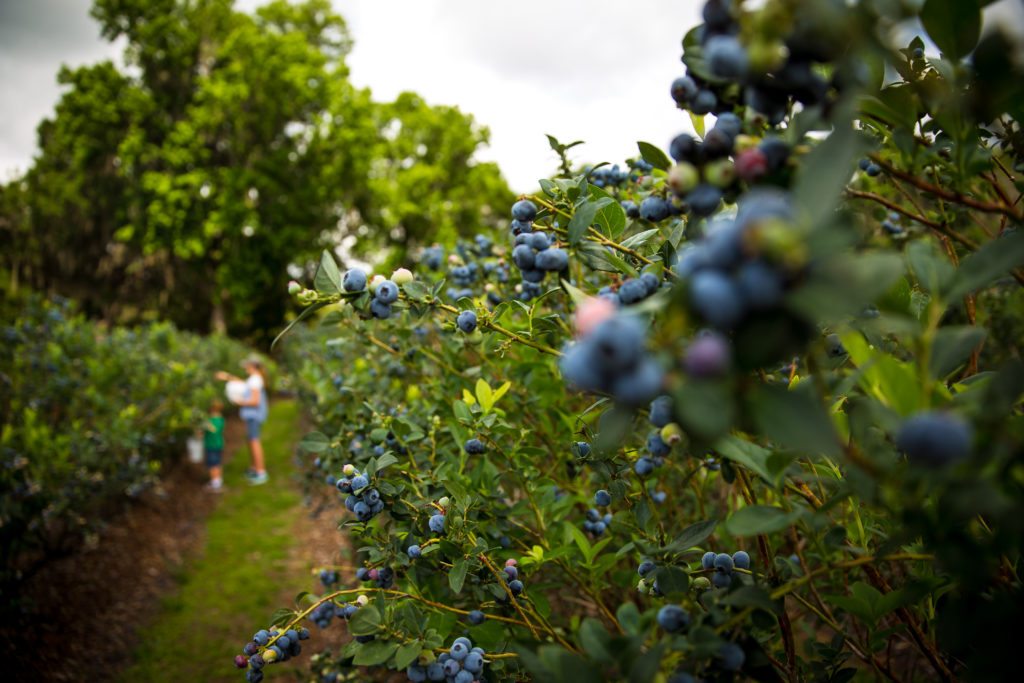Hobby farmers turn dreams into reality and get their hands dirty in the process!

As a child growing up in New York, Shay Evans always dreamed of having a farm. It took decades to come true, but now farming is a lifestyle, not a dream.
Shay Evans and Steve Dean own Hidden Dreams Farm in northwest Marion County where they raise dairy goats, chickens and ducks and even have a few llamas, alpacas, emus, exotic birds and a donkey in the mix. They moved to this area after living in Orlando for a dozen years and bought their five-acre farm in 2006.
Both Shay and Steve have full-time jobs in addition to the farm, so to say their lives are busy is an understatement.
“I was leaning toward horses because I had one when I was younger, but that’s not where my heart really was,” says Shay. “I talked to friends who had goats, and we bought some Nigerian Dwarfs to start, but they didn’t produce enough milk for what I wanted to do, so after doing a lot of research, we went with Nubian and Saanan, which are bigger dairy goats. When I got into the goats, I realized that’s where my heart was. They have such personalities; all my girls love me to death.”

Now Shay sells her homemade goat cheese, goat’s milk soap, yogurt, kefir and raw milk at area farmers markets, including On Top of the World, Marion Oaks Rec Center market and outside Tractor Supply Co, on Highway 441 on Saturday mornings, where she works. She also sells fresh eggs and honey.
Shay put in countless hours of online research and talked to other farmers.
“I love Google and YouTube; that’s taught me a lot,” she says. “I do all my own vaccinations and hoof trimming and taught myself how to make soap by using instructional websites.”
The does (mama goats) will soon be “kidding,” which means lots of adorable babies.
“Last Christmas morning, one of my does delivered quadruplets,” says Shay. “All the babies get colostrum from their moms, but then we bottle feed them.”
Through the years, Shay has found the biggest challenge in running a hobby farm is the paperwork. All her dairy goats are registered stock, and she also sells goats for showing, so the requisite paperwork can be a bit daunting. (“If you could see my desk…,” she laughs.)
The 45 chickens and 15 ducks on the farm provide eggs that are regularly sold at the farmers markets.
“The duck eggs are actually higher in protein than chicken eggs, so they’re great for baking,” says Shay, who has found that customers prefer brown or colored eggs when buying farm fresh eggs because they can get white eggs at any grocery store.
For Shay, the greatest reward for all her hard work is loyal customers.
“I know they’re looking for me at the markets, and that makes me feel good,” she says.
It’s The Berries

When Mike and Gail Waldron bought their farm near Fort McCoy in 2003, they found a 2-acre section of old blueberry bushes where the late owner once had a u-pick operation. The bushes had laid fallow for many years and some were dead, but Gail hated the thought of destroying those that remained.
“I like growing things, but I didn’t know anything about blueberries at the time,” she recalls. “I thought I’d give it a shot, clean up the farm and have a place where people could come pick blueberries again. I took seminars and did field work days with the University of Florida extension service to learn.”
Gail and Mike trimmed up the old bushes and planted new ones. Eventually, Gail was able to take clippings from their own bushes to grow more. Now their Bay Lake Blueberry Farm has about 4,000 blueberry bushes spread out over 4 acres and features 15 different varieties, all organically grown without pesticides, herbicides or chemical fertilizer of any kind.
For a period of time, the farm was “certified organic,” but the fees and time-consuming government paperwork became overwhelming, so Gail no longer pays to have the U.S. government certification but still maintains strictly organic growing practices.
 Gail picks and delivers berries for customers who order in bulk and then opens the farm for u-pick customers every Friday and Saturday throughout the season, which is usually all of June and the first half of July. Some years, the crop will come in early enough to open in May, but June is more typical.
Gail picks and delivers berries for customers who order in bulk and then opens the farm for u-pick customers every Friday and Saturday throughout the season, which is usually all of June and the first half of July. Some years, the crop will come in early enough to open in May, but June is more typical.
She also makes her locally famous blueberry ice cream, which is a big hit with the u-pick customers visiting the farm.
Mike has a full-time job, so running the u-pick operation falls mainly to Gail. During the season, she’ll put in 30- to 40-hour weeks, but in the off season, the work is mostly just maintenance and not as intensive.
With a winter like we had this year, Gail made sure to “freeze protect” her bushes by running their overhead sprinkler system all night. The water forms a clear ice over the buds and protects the fruit that will form from those buds. Cold, windy nights present a challenge because the wind interferes with the formation of clear ice and buds are often damaged.
“Anything under 50 degrees is considered a ‘chill hour’ and actually helps make better berries, so we’re hoping for a good crop this year with the chill hours we’ve had,” notes Gail.
People drive from as far as Miami to pick at Bay Lake Blueberry Farm. Gail also notes that she has a number of cancer patients who come for their berries knowing they are organically grown.
Despite all the hard work that goes into the farm, the Waldrons have found you can’t really make a living off a blueberry farm unless you have substantially more acres than they have presently.
“We don’t make a lot of money from the farm, but it helps pay the property taxes. I like talking with the people who come out to pick,” says Gail, adding with a smile, “and I enjoy making my ice cream for them.”
Starting Your Own
If you’ve been toying with the idea of starting a hobby farm yourself, you’re certainly in good company. In Marion County today, there are approximately 3,500 hobby farms, with “hobby farm” defined as a small-scale operation that is primarily for pleasure rather than business. Even if the farm brings in some money, owners aren’t relying on it for their main source of income.
Start with your goals. Do you want to grow organic produce, raise free-range chickens, milk a herd of dairy goats, get honey from your own bee hives?
Once you define your goals, it’s time to assess your financial resources. Because hobby farms are typically self-funded, this will give you a good idea of what you can afford and whether you need to readjust your goals.
“Knowledge and experience are fundamentally what will make a hobby farm as successful as possible,” says Mark Bailey, small farms agent at the Marion County UF/IFAS Extension Service in Ocala.
“It is always a good idea to get to know people who have a lot of knowledge and experience about your area of interest,” Bailey advises. “At the Marion County Extension office, we are educators and work every day to help people of any background acquire the information they need to improve their lives. Also, the University of Florida publishes a tremendous amount of articles about every significant agricultural topic relevant to the state of Florida. Specifically, it is called the UF/IFAS Electronic Data Information Source, or EDIS for short. The information contained within those documents originates from unbiased, research-based sources.
“The more knowledge you gain, the better you’ll be able to assess the necessary time, labor, equipment, risks and safety protocol involved before sinking money into making your hobby farm a reality,” Bailey adds. “Even though a hobby farm isn’t expected to turn a profit, you’ll still be investing significant time, money and effort into it, so do your homework ahead of time.”
With that in mind, realize that you may not make a dime on your hobby farm, (Remember, the definition of hobby is something you do for pleasure, not money.), so start small, and don’t spend more money than you have setting up your operation.
According to the U.S. Internal Revenue Service, hobby farms aren’t qualified to receive the same tax breaks earmarked for small-farm owners. Small farms that are actual business ventures must prove their expenses and income in order to receive tax benefits. Although the hobby farmer doesn’t need to do this, it’s still important to keep records and track receipts.
“It’s quite easy to lose track of farm expenses, so keeping records can help with that as well as plan for the future,” notes Bailey. “This information can help owners determine how to make improvements to how they operate their hobby farm. Also, if something goes wrong they can potentially track down the source of the problem. In cases where disasters occur, such as the recent hurricanes, keeping good records of sales, purchases, etc. can greatly help them secure relevant loans or grants.”
Be responsible (especially if you’re dealing with animals’ lives), but be willing to experiment to find the hobby farm plan that best fits your life. Monitor your progress, reassess and realize it’s OK to change your goals and expectations.
You may start out with pygmy goats and end up growing orchids—and that’s OK.
Learn More › marioncountyfl.org/extensionservice › You can also find Hidden Dreams Farm and Bay Lake U-Pick Organic Blueberry Farm on Facebook.
Savvy Advice For Would-Be Hobby Farmers
- • Learn from experts before diving in.
- • Start small.
- • Set a budget, and don’t go into debt to make your farm happen.
- • Don’t expect to make a profit.
- • Keep good records along the way.






